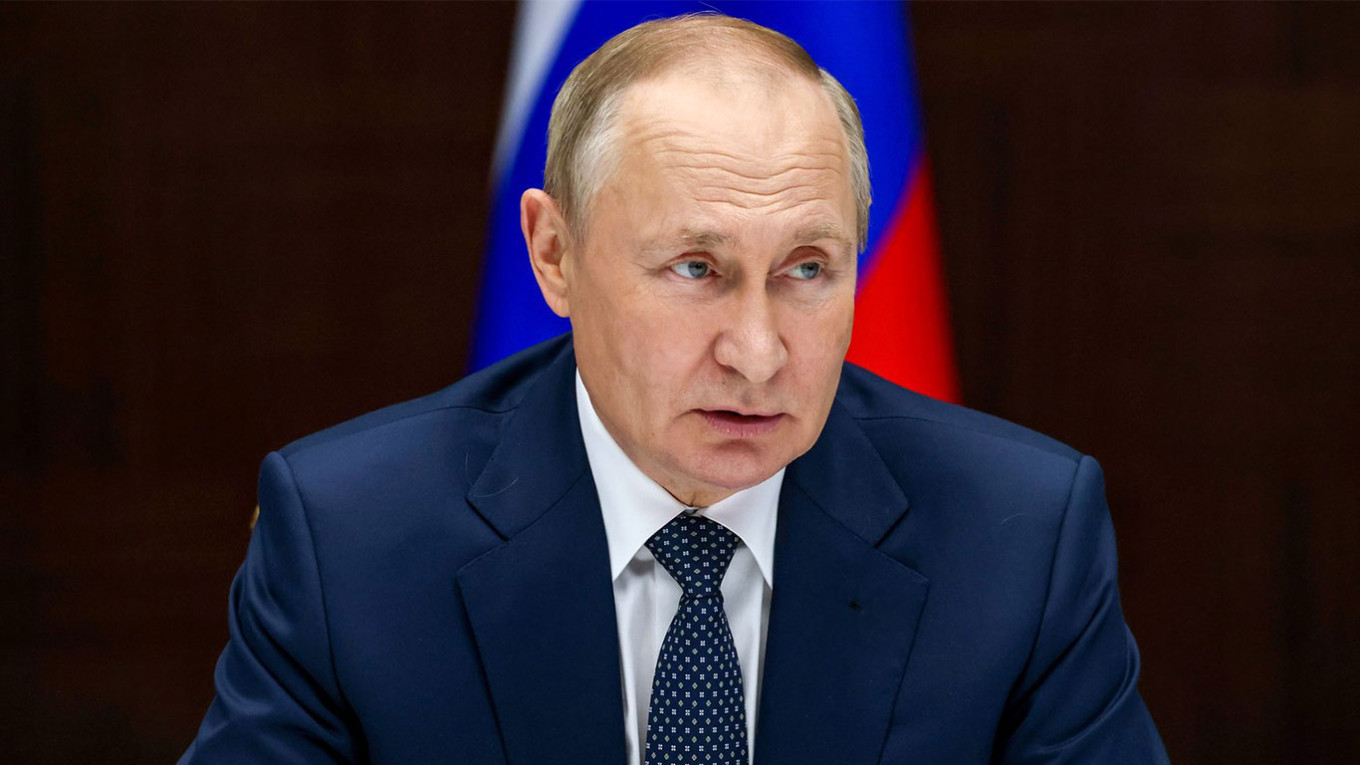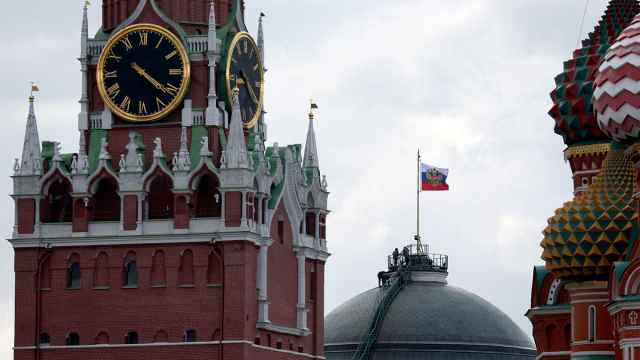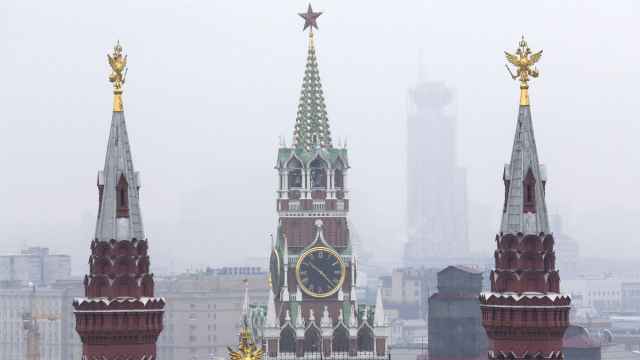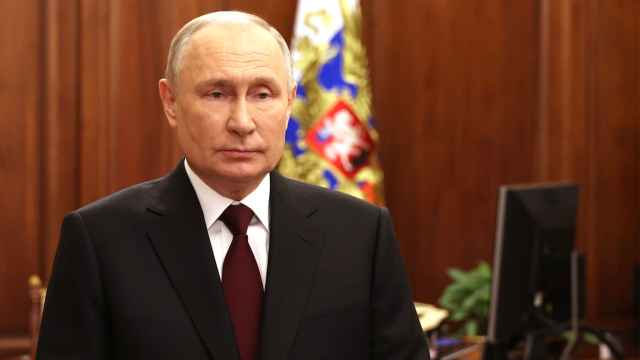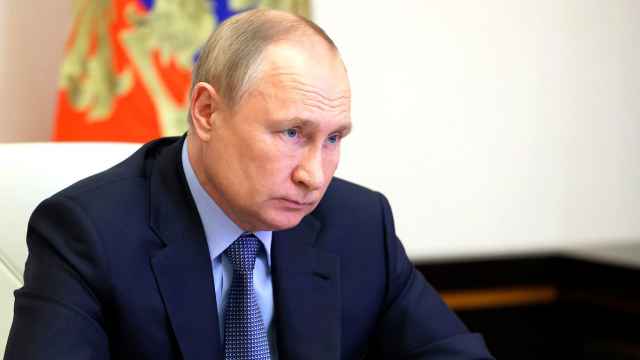Russian President Vladimir Putin on Wednesday declared martial law in four Ukrainian regions that Moscow claims to have annexed as the Russian military continues to be plagued by setbacks in its eight-month offensive.
"I signed a decree to introduce martial law in these four subjects of the Russian Federation," Putin said during a televised meeting of Russia’s Security Council, referring to Ukraine's Donetsk, Luhansk, Zaporizhzhia and Kherson regions.
“The Kyiv regime, as you know, refused to recognize the will and choice of the people and rejected any proposals for negotiations,” Putin said.
He also accused Ukraine of using "terrorist methods."
"They send sabotage groups into our territory," he said, claiming Moscow had foiled other attacks after its Crimea bridge was targeted "including at our nuclear power facilities."
Martial law will enter into force from early Thursday, according to the decree published by the Kremlin.
The four regions' Russian-appointed leaders will also be granted “additional authority,” Putin said.
Kremlin spokesman Dmitry Peskov said Wednesday that Russia will not close its borders following the martial law declaration.
Under Russian law, martial law gives authorities sweeping powers to impose curfews, travel and residence restrictions, military censorship and more.
The country's Constitution states that when martial law is in effect “the rights and freedoms of citizens of the Russian Federation, foreign citizens and stateless persons” may be restricted.
Russia may take "other measures" under existing martial law "if necessary," the Kremlin's decree Wednesday states, including unspecified "limitations on rights and freedoms" and "additional obligations," as well as "general or partial mobilization."
Moscow Mayor Sergei Sobyanin sought to quell worries that the declaration would impact residents of the Russian capital, saying in a Telegram post that the city will not impose any measures that might change “the normal rhythm of life” in the city.
Russia’s Krasnodar, Belgorod, Bryansk, Voronezh, Kursk and Rostov regions, as well as the annexed Crimean peninsula, should increase their security, implement a special entry regime and limit the movement of vehicles over their borders, according to the Kremlin's decrees. These regions also have the authority to temporarily evacuate residents to safe areas.
Russia’s Constitution gives the president the power to declare martial law “in the event of aggression against the Russian Federation or of a direct threat of aggression,” requiring that the president inform both houses of Russian parliament, the Federation Council and the State Duma.
The upper-house Federation Council approved the declaration of martial law later Wednesday, the final formality needed for it to become official.
Putin announced the annexation of Donetsk, Luhansk, Zaporizhzhia and Kherson in a highly choreographed ceremony last month following referendums that were condemned by Ukraine and its Western allies as a sham.
Kyiv's forces have been clawing back territory in these regions in recent weeks as the Russian military has been plagued by setbacks including a chaotic mobilization effort.
Putin's announcement Wednesday comes as Moscow's forces evacuate civilians in Kherson to the left bank of the Dnipro River ahead of an expected Ukrainian move to retake the city.
A Message from The Moscow Times:
Dear readers,
We are facing unprecedented challenges. Russia's Prosecutor General's Office has designated The Moscow Times as an "undesirable" organization, criminalizing our work and putting our staff at risk of prosecution. This follows our earlier unjust labeling as a "foreign agent."
These actions are direct attempts to silence independent journalism in Russia. The authorities claim our work "discredits the decisions of the Russian leadership." We see things differently: we strive to provide accurate, unbiased reporting on Russia.
We, the journalists of The Moscow Times, refuse to be silenced. But to continue our work, we need your help.
Your support, no matter how small, makes a world of difference. If you can, please support us monthly starting from just $2. It's quick to set up, and every contribution makes a significant impact.
By supporting The Moscow Times, you're defending open, independent journalism in the face of repression. Thank you for standing with us.
Remind me later.


